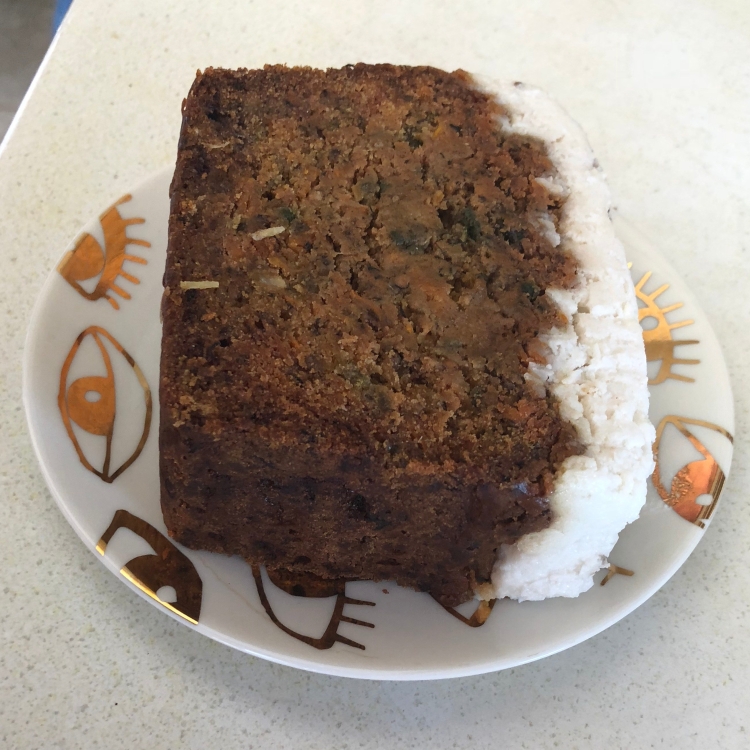
Good plant-based food is often found in the strangest of places and the Feel Good Café in north-east London is an example of this. A small underused Chingford arcade, tucked neatly between a pet grooming salon and a photography studio, is where owner Idan, pictured above right, started up his vegan café three years ago.
With a constantly updated menu filled with good wholesome vegan fare – at the point of writing it includes the most delicious buckwheat pancakes with chia seeds, potato bagels and pink love porridge made with beetroot powder – the Feel Good Café is passionate about both the food they serve and the cause they are helping to promote.
So what is the driving force behind this venture? Idan answered the questions we put to him.
I know you came to veganism initially for health reasons – what specifically was the condition that led to this diet?
I suffer with ME/CFS, an autoimmune condition that until five years ago kept me housebound for years. Living with ME is like living with a flu that doesn’t go away.
Having being diagnosed, what led you to a plant-based diet? I have heard you talk at points about raw veganism… is that a diet you’ve tried yourself?
Over the years in my desperation to get better I’ve tried many diets. Eventually I realised that we share a common ancestor with the great apes. And that the great apes are still living not only in the same environment that we evolved from, but also eating the very same food that our species originally evolved to eat.
From there I learned that we have the hands to murder a banana, fig, spinach leaf, apple and so on but certainly not a living animal. Furthermore, looking at our digestive tract, teeth and jaw movement it is clear as day that we are herbivores/frugivores.
Morally we do not possess the excitement and hunger associated with killing an animal for food ourselves. Blood puts us off, where it excites a carnivore.
My diet consists of: fruits, vegetables, lentils, beans, grains, nuts and seeds. I try to eat them as nature presents them, so no frying, no salt, oil or sugars added. I tend to eat more raw foods in summer and more cooked in winter.
How much research do you think people should do before starting a vegan diet?
Animals are getting killed by the thousands as we speak; there’s no time to be wasted, first go vegan. Eat fresh and natural foods. Then read the book How Not To Die by Dr Michael Greger. This will set you on an amazing path that offers higher morals and health.

I know you are passionate about veganism being for the animals. Where does this fit in with your choice to go vegan? Were you vegetarian before your diagnosis?
I too, regrettably, was a meat eater once, but films such as Earthlings, Cowspiracy or Dominion have inspired many of us to become passionate about our commitment to animals – veganism is a logical consequence.
You strike me as an excellent front man for the cause. When you started your cafe in that little, often deserted, arcade, I was delighted. But I couldn’t help wondering how anyone starting a vegan café in that venue could make it work. You have though – how on earth have you achieved that?
It was hard to attract people at first and still is much harder to get customers compared to a High Street shop. However, word of mouth soon started spreading and so did our social media channels. But yes, being tucked away, it’s always a working process.
You’ve achieved what I have to say is an amazing feat. What was this journey like? How have you made it work? Were they times when you felt like you’d made the wrong decision, starting this venture? And who are your customers?
The Feel Good Café is made up from different teams. I may be the face, but Izabela is constantly hitting on the social media, while other people are making sure the shop runs smoothly each day. We have an amazing accountant and business consultant who’s vegan too.
But most importantly it’s the local people, community and online community. All of whom are extremely dedicated to the cause of saving animals and eating healthily. The people of Chingford and the wider area are incredible and extremely supportive to their local vegan café.
Life is not perfect; we make mistakes regularly but also small landmarks. We’re still young, only going for three years. And over time the path gets clearer and easier to walk on.

 Try googling vegetarian hotels in the UK and the choices are still very thin on the ground, and yet for me, certainly, as cool as it is to find places with great vegan choices, I always feel much more at home in cafes, restaurants and accommodation where vegetarian is just the way it is rather than merely an option. This is how I came across, and spent a night at, Our Lizzy, a cookery school and B&B based in Malvern; this vegan establishment is run by Lizzy Hughes, pictured, a former teacher whose appetite for good food led her to open her own business eight years ago.
Try googling vegetarian hotels in the UK and the choices are still very thin on the ground, and yet for me, certainly, as cool as it is to find places with great vegan choices, I always feel much more at home in cafes, restaurants and accommodation where vegetarian is just the way it is rather than merely an option. This is how I came across, and spent a night at, Our Lizzy, a cookery school and B&B based in Malvern; this vegan establishment is run by Lizzy Hughes, pictured, a former teacher whose appetite for good food led her to open her own business eight years ago.